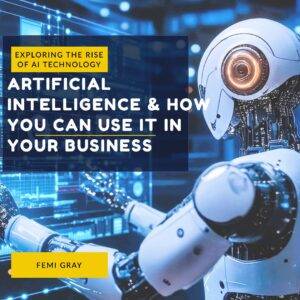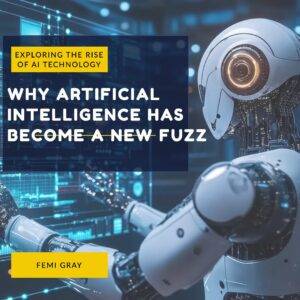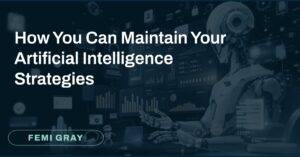
I hope you enjoyed reading this blog post. If you want my team to just do your marketing for you, click here.
Author: Femi Gray| Founder of SlateGray Digital & Owner of MonetizeYourSkill
Artificial intelligence (AI) is more than just a buzzword. It’s the driving force behind much of the innovation we’re seeing today, but with so much excitement around it, you might wonder: What’s all the fuss about? In this article, we’ll explain why AI has captured the world’s attention, explore its true capabilities, and clarify its common misconceptions.
From businesses looking to automate operations to marketers seeking to personalize customer experiences, AI promises a revolution in how we work. But does the hype match the reality? Let’s dig deeper.
Key Takeaways
- AI is not a magic solution. It offers huge potential but requires careful planning and execution.
- The AI hype cycle shows that while AI is overhyped at times, it’s still a transformative technology when used properly.
- AI adoption comes with challenges, but businesses that embrace AI will see increased efficiency, smarter decision-making, and improved customer experiences.
- AI misconceptions need to be debunked. It’s not about replacing jobs, and it’s accessible to businesses of all sizes.
- The future of AI is bright, with applications across industries that will continue to evolve.
What is Artificial Intelligence?
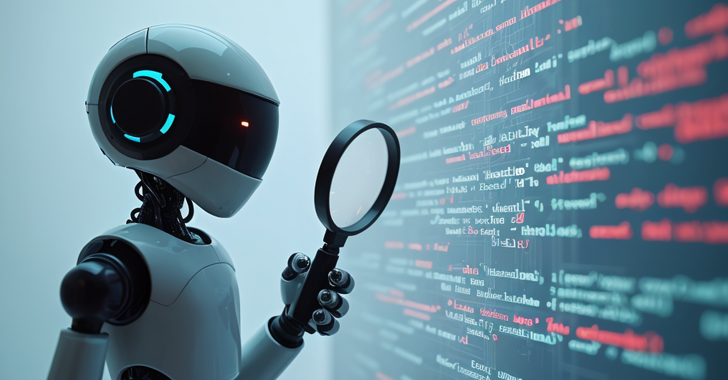
Artificial intelligence refers to the simulation of human intelligence in machines. These machines are programmed to think, learn, and problem-solve. They can perform tasks that would typically require human intelligence, such as:
- Learning from data (through machine learning)
- Understanding language (natural language processing)
- Making decisions based on data (predictive analytics)
AI isn’t just about robots and sci-fi movies; it’s already playing a major role in industries like healthcare, finance, and even marketing.

See How My Agency Can Drive More Traffic to Your Website
- Business Automation: Automate repetitive tasks. So you can focus on more important things.
- Content marketing: Our team creates epic content that will get shared, get links, and attract traffic.
- Paid Media: Effective paid strategies with clear ROI.
Why is AI Getting So Much Attention?
AI is transforming businesses in unprecedented ways. The growing interest is due to the massive potential AI holds to:
- Automate repetitive tasks and free up human workers to focus on higher-value activities.
- Provide data-driven insights that can lead to smarter decision-making.
- Enhance customer experiences through personalized interactions, as seen in platforms like Amazon and Netflix.
The promise of improving efficiency and gaining competitive advantages has made AI a hot topic. However, as more businesses jump on the bandwagon, we must ask: Is the hype justified?
The AI Hype Cycle: Is AI Overhyped?
Let’s break down the AI hype cycle to see where we currently stand. The hype cycle refers to the way new technologies go through a predictable pattern of:
- Inflated expectations: In the beginning, everyone’s excited about the possibilities.
- Disillusionment: After the reality sets in, people realize that it’s not as easy as it seems.
- Saturation and practical use: Eventually, we will hit a stage where AI can deliver real, tangible benefits.

The latest AI News + Insights
Discover expertly curated insights and news on AI, cloud and more in the weekly Think Newsletter.
At the moment, we’re somewhere between the inflated expectations and the disillusionment phase. While AI is capable of amazing things, it’s not always the magic solution companies expect. Some AI tools are still evolving and have limited applicability in certain industries or use cases.
What’s All the Fuss About?
So, why has AI become such a big deal? The buzz is driven by its ability to drive digital transformation in businesses, leading to:
- Increased productivity: By automating routine tasks like customer support or data analysis, AI helps businesses operate more efficiently.
- Improved decision-making: AI can sift through massive amounts of data to identify trends that humans might miss, allowing businesses to make smarter decisions faster.
- Personalized customer experiences: AI algorithms power personalized recommendations, as seen in companies like Netflix and Spotify.
In industries such as healthcare, AI is being used for predictive analytics and diagnosing diseases. In e-commerce, AI helps to personalize shopping experiences by recommending products based on customer behavior. The real-world applications are vast and growing rapidly.
The Misconceptions: What Are We Getting Wrong About AI?
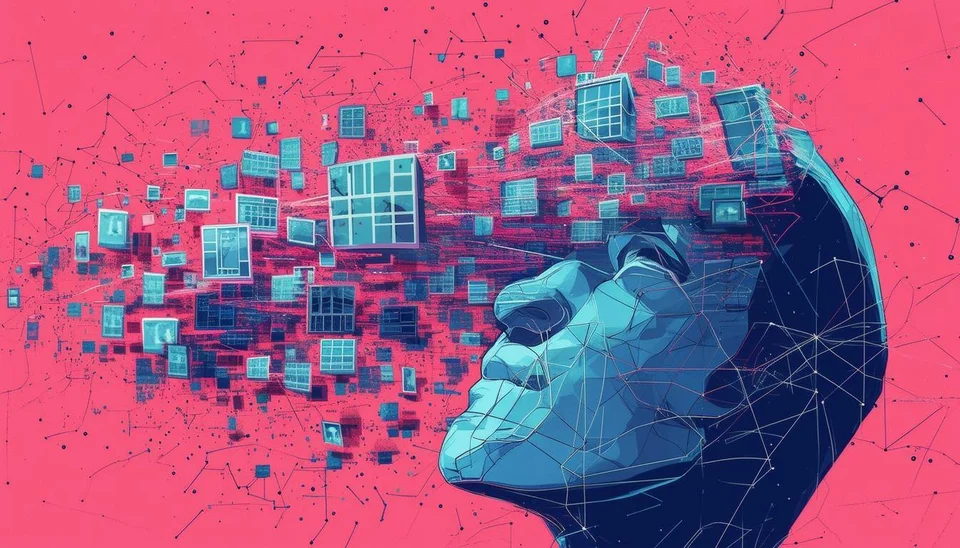
As with any technology, AI has its share of misconceptions. Here are a few common myths about AI that we need to clear up:
- AI Will Replace Jobs
- While AI will certainly automate repetitive tasks, it’s not replacing human jobs altogether. In fact, AI will likely change the nature of work, shifting human roles toward more complex, creative, and strategic tasks. That’s why I concluded that AI is not going to take your jobs; it’s the people who know how to use AI that can take your job.
- AI is Only for Big Companies
- This is far from the truth. AI is accessible to small and medium-sized businesses (SMBs), too. With tools like chatbots and customer service automation, SMBs can leverage AI to scale their operations without needing huge budgets.
- AI Knows Everything
- AI tools are only as good as the data they are trained on. Poor data quality leads to poor outcomes. AI systems are not infallible and can make mistakes if not properly configured or tested.
Learning Resources
AI Adoption Challenges: Why Are Businesses Struggling?
The challenges of AI adoption are real. While the benefits of AI are clear, many companies still face barriers when implementing AI solutions. Some key challenges include:
- Data Quality and Availability: AI thrives on high-quality, relevant data. Without it, the results can be inaccurate or misleading.
- Lack of Understanding: Many businesses struggle to understand how AI works or how to use it effectively. Without a clear strategy, AI investments can quickly become a waste.
- Integration Issues: AI tools need to be integrated with existing systems. This can be a complex and time-consuming process.
- Cultural Resistance: Employees may fear AI will take their jobs or disrupt their workflows. Change management is crucial for AI success.
Case Study:
Take Miraj Holdings, for example, a midsized retailer. They implemented AI-driven chatbots to improve customer service. However, they faced difficulties integrating the bots with their existing customer service software. The project initially failed to deliver the expected ROI because employees weren’t trained on how to manage the new system, and customers had mixed experiences. Once they provided proper training, the bot’s performance improved, and customer satisfaction grew by 40%.
This case shows that while AI can drive improvements, it needs to be properly implemented and integrated with business processes.
The Future of AI: What’s Next?
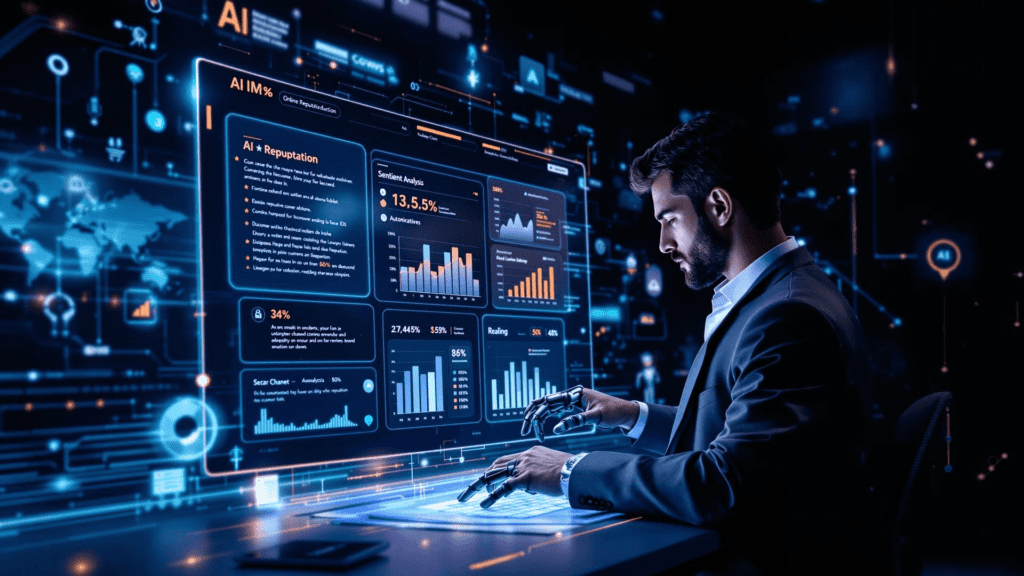
Looking ahead, the future of AI is exciting. As AI tools become more accessible, businesses will continue to find new ways to integrate AI into their operations. Here’s what’s on the horizon:
- AI in Healthcare: AI will become a critical tool in diagnosing diseases earlier and managing patient data more effectively.
- AI-Powered Customer Service: With AI chatbots and virtual assistants becoming more sophisticated, customer service will be faster, more personalized, and available 24/7.
- Ethical AI: As AI becomes more widespread, there will be a greater focus on creating ethical AI—ensuring that AI systems are transparent, unbiased, and fair.
The next few years will be pivotal in shaping how businesses use AI to drive growth and improve efficiency.
Conclusion
AI is here to stay. While the hype around it can sometimes feel overwhelming, it’s important to separate the reality from the exaggeration. When implemented strategically, AI can drive tangible benefits for your business, from automating tasks to improving decision-making. The key is to understand its capabilities, use it in the right contexts, and be mindful of the challenges and misconceptions.
Take Action:
Want to learn more about how AI can benefit your business? Download our free e-book or schedule a free consultation to start building an AI strategy that scales your business.
FAQs:
AI’s popularity surged as its ability to automate tasks, enhance customer experiences, and enable smarter decision-making became more apparent. Innovations in machine learning and data analysis have made AI more accessible and applicable to various industries.
The term “fuzzy” in AI refers to fuzzy logic, a mathematical approach to handling uncertainty. It’s used to create systems that can make decisions based on imprecise or incomplete data, which is common in real-world applications.
AI is the next big thing because it enables businesses to become more efficient, personalize experiences for customers, and make more informed decisions. As AI continues to evolve, it will only increase its impact on how businesses operate and grow.
AI has the potential to revolutionize industries by automating processes, providing data-driven insights, and improving customer interactions. The growing excitement stems from the possibilities of AI to streamline operations and deliver measurable growt
Learning Resources:
Join MonetizeYourSkill Membership here for more on this


